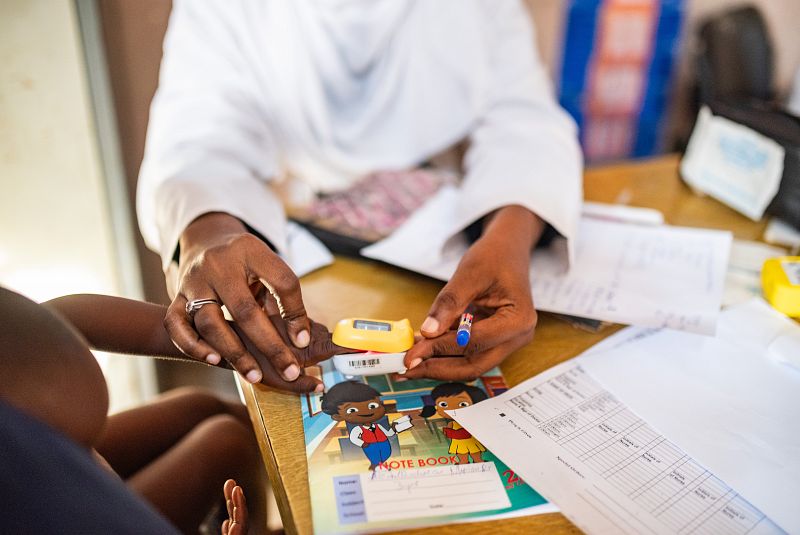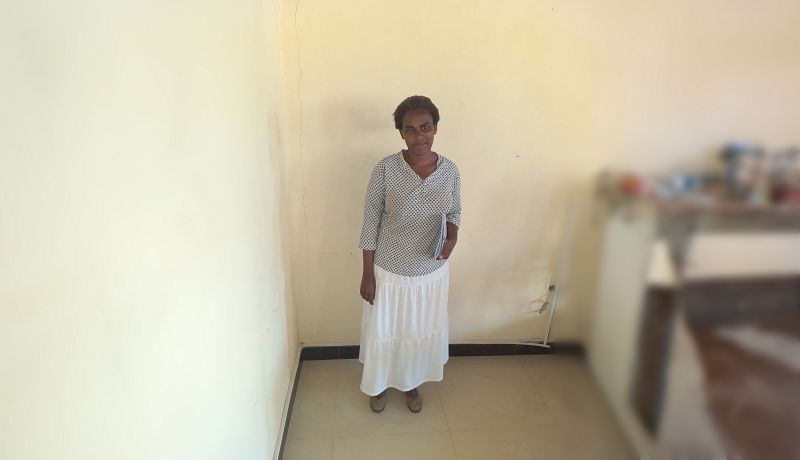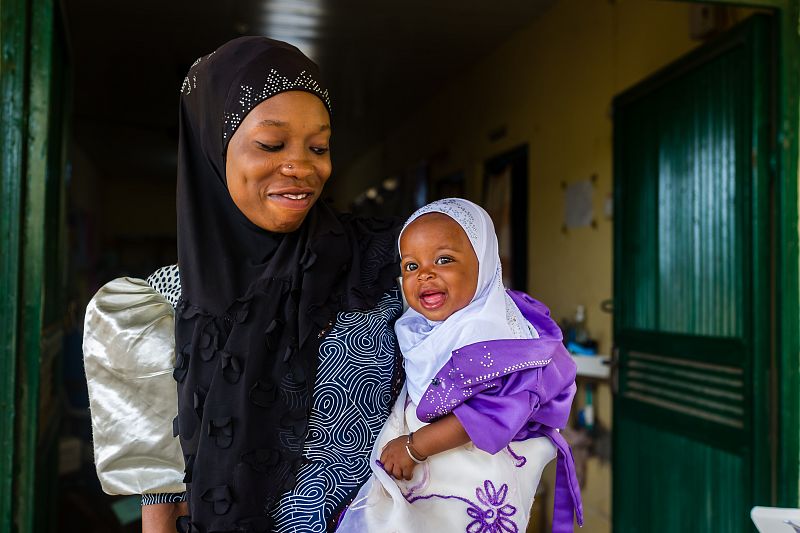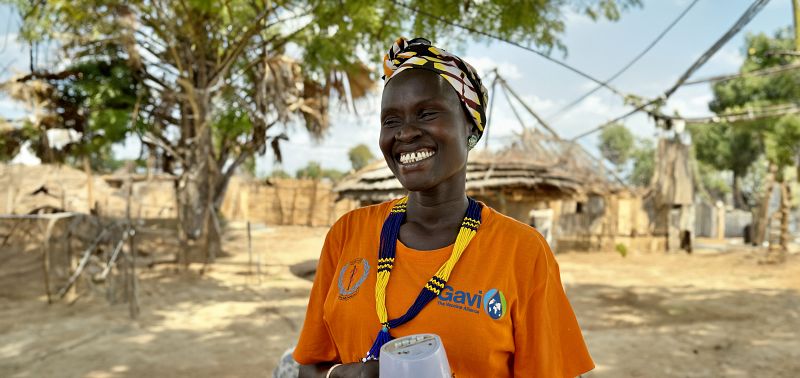Publications
Explore our publications to find useful evidence, lessons and recommendations from our work across Africa and Asia
Type
- Advocacy and positioning
- Advocacy briefs
- Advocacy reports
- Annual reviews
- Brochures
- Capacity statements
- Position statements
- Conference
- Briefing notes
- Posters
- Presentations
- Guidance and toolkits
- Guidance
- Training materials
- Learning
- Case studies
- Infographics
- Insight briefs
- Learning briefs
- Learning papers
- Newsletters
- Research and Technical
- Journal articles
- Project briefs
- Project reports
- Research briefs
- Synopses
- Technical briefs
Keyword
- ASTMH
- Advocacy
- COVID-19
- Capacity development
- Case management
- Case study
- Chemoprevention
- Child survival
- Climate
- Community delivery
- Costing and economic impact evaluation
- Data-informed decision-making
- Diagnosis
- Digital health
- Elimination
- Evidence generation
- Gender
- Genetic modification
- Health financing
- Health system strengthening
- Learning
- Logistics
- MNCH
- Malaria in pregnancy
- Monitoring and evaluation
- PMC
- Philanthropy
- Policy development
- Private sector
- Quality improvement
- Research
- Resistance management
- SBC
- SDGs
- SMC
- Scaled implementation
- Scholarships
- Surveillance
- Treatment
- Universal health coverage
- Urbanisation
- Vaccines
- Vector control
- Webinars
- iCCM
Diseases
Country
Language
Reset all search optionsCurrent search filters (53 results match ALL terms):
Malaria in pregnancy
 08/03/2024
Journal article
08/03/2024
Journal article
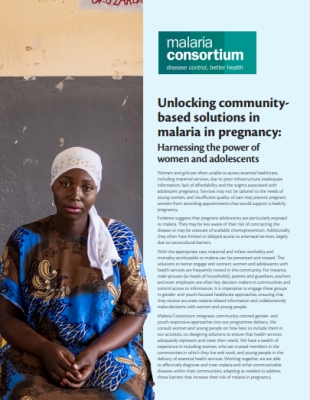 10/05/2023
Brochure
10/05/2023
Brochure
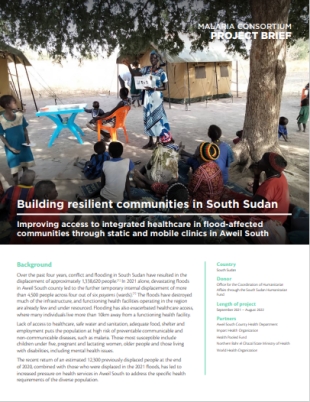 11/03/2022
Project brief
11/03/2022
Project brief
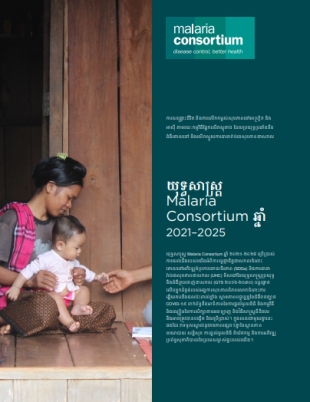 08/02/2022
Annual review
08/02/2022
Annual review
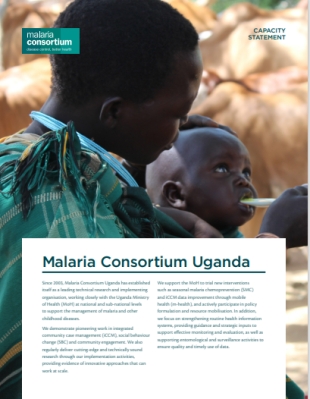 03/02/2022
Capacity statement
03/02/2022
Capacity statement
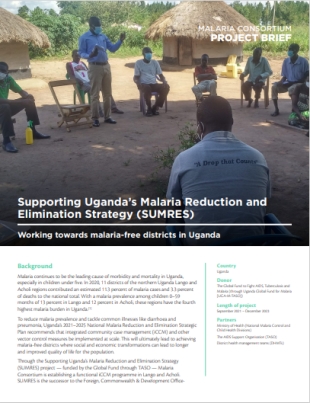 26/01/2022
Project brief
26/01/2022
Project brief
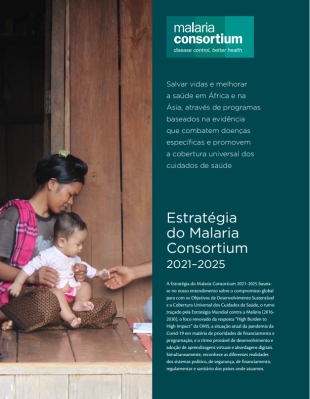 22/11/2021
Annual review
22/11/2021
Annual review
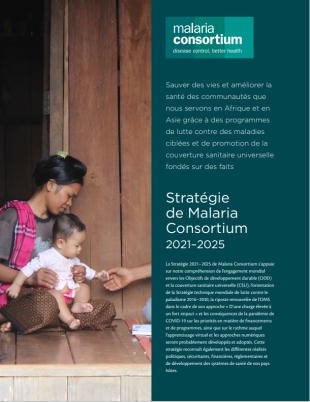 22/11/2021
Annual review
22/11/2021
Annual review
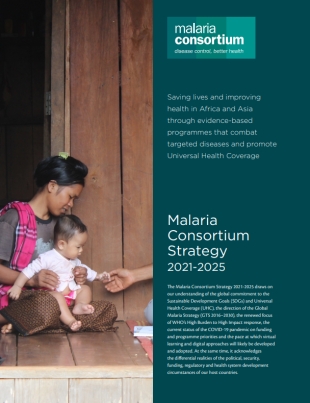 09/11/2021
Annual review
09/11/2021
Annual review
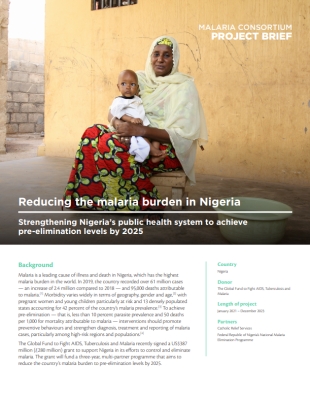 10/08/2021
Project brief
10/08/2021
Project brief
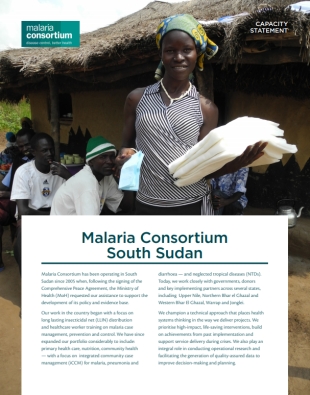 28/05/2021
Capacity statement
28/05/2021
Capacity statement
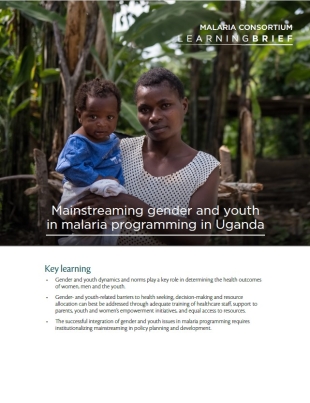 30/10/2020
Learning brief
30/10/2020
Learning brief
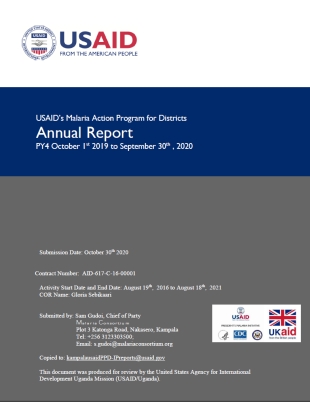 30/10/2020
Project report
30/10/2020
Project report
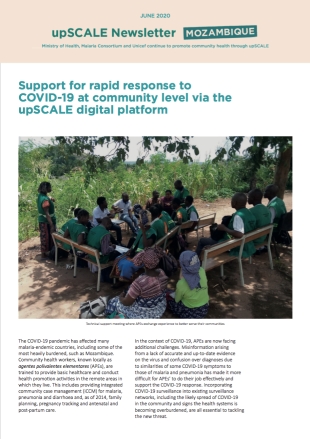 02/07/2020
Newsletter
02/07/2020
Newsletter
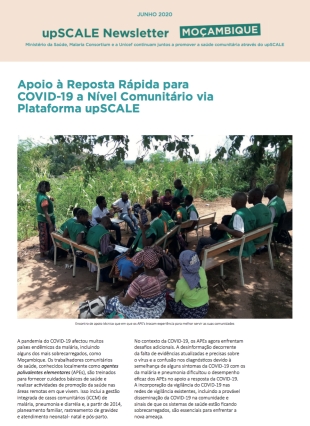 02/07/2020
Newsletter
02/07/2020
Newsletter
 22/05/2020
Case study
22/05/2020
Case study
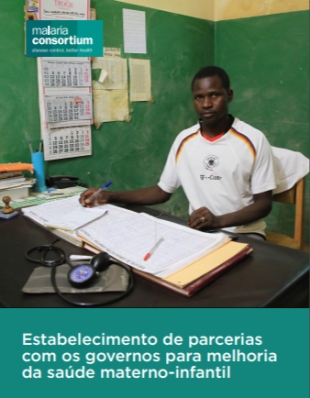 05/03/2020
Brochure
05/03/2020
Brochure
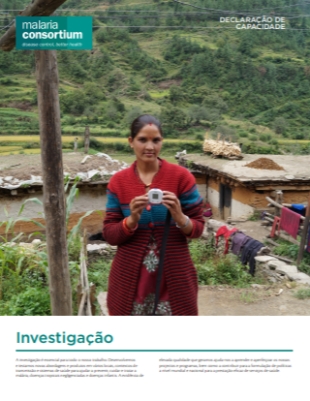 05/03/2020
Capacity statement
05/03/2020
Capacity statement
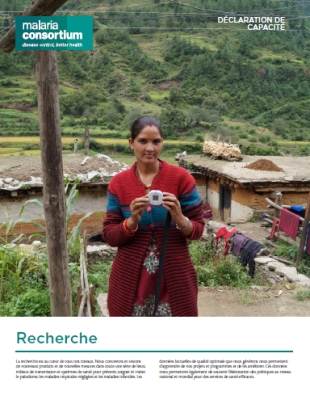 10/02/2020
Capacity statement
10/02/2020
Capacity statement
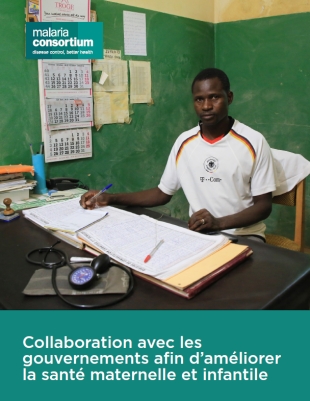 10/02/2020
Brochure
10/02/2020
Brochure
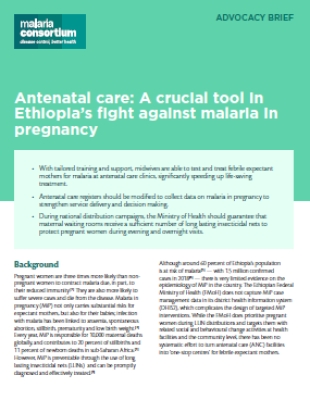 07/02/2020
Advocacy brief
07/02/2020
Advocacy brief
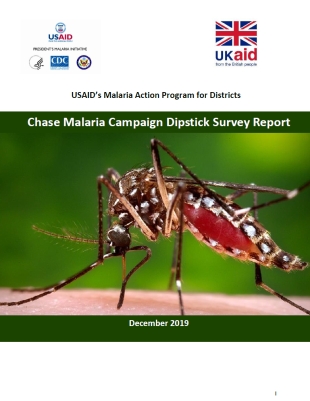 20/12/2019
Project report
20/12/2019
Project report
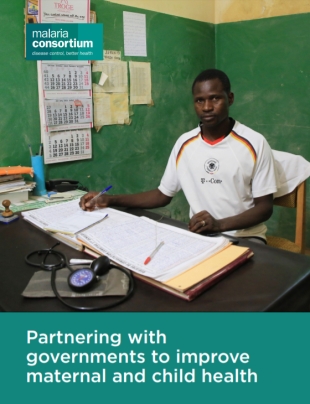 17/12/2019
Brochure
17/12/2019
Brochure
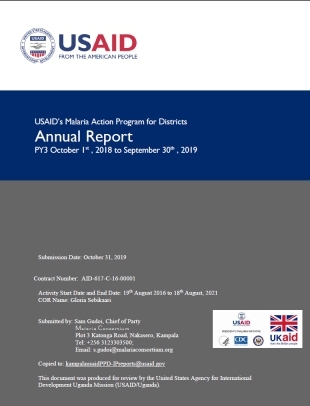 30/10/2019
Project report
30/10/2019
Project report
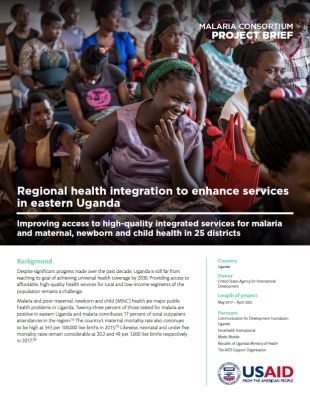 23/09/2019
Project brief
23/09/2019
Project brief
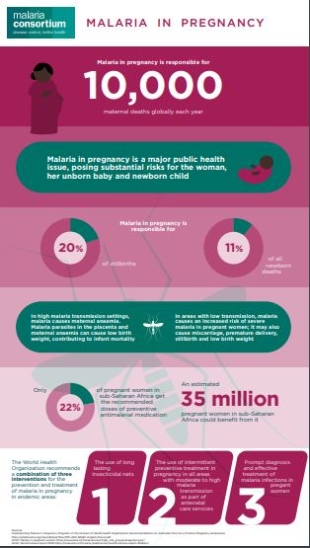 12/08/2019
Infographic
12/08/2019
Infographic
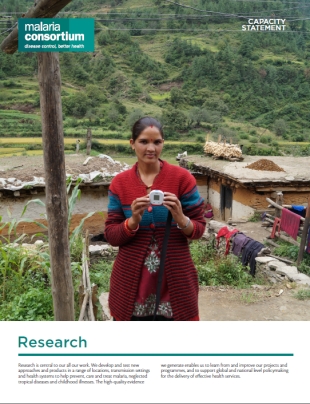 07/05/2019
Capacity statement
07/05/2019
Capacity statement
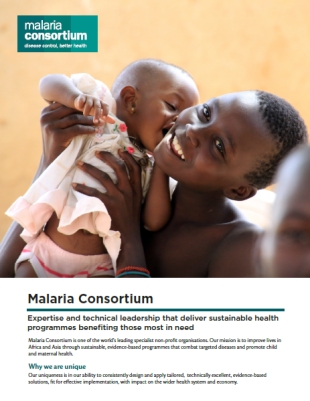 30/03/2019
Capacity statement
30/03/2019
Capacity statement
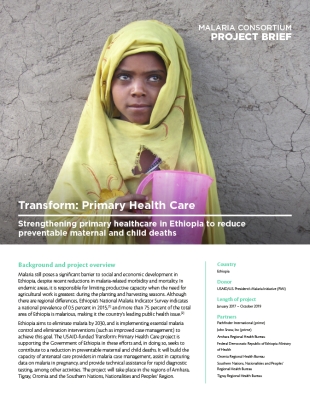 22/01/2019
Project brief
22/01/2019
Project brief
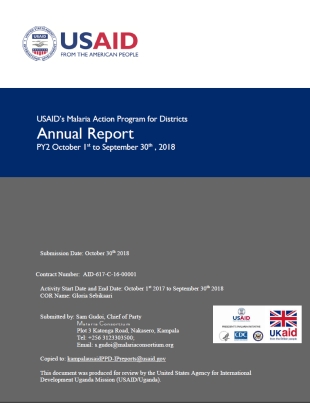 30/10/2018
Project report
30/10/2018
Project report
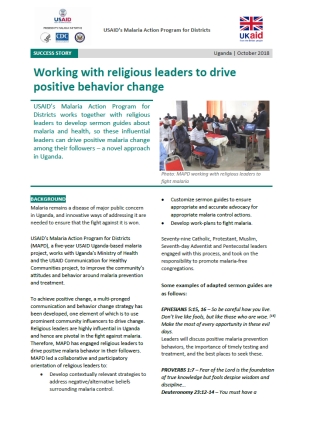 15/10/2018
Case study
15/10/2018
Case study
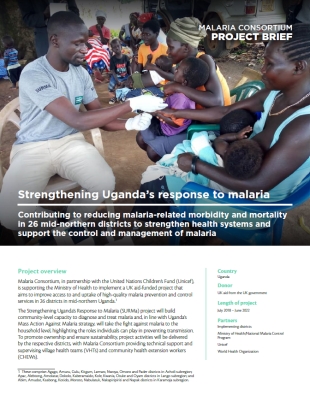 24/09/2018
Project brief
24/09/2018
Project brief
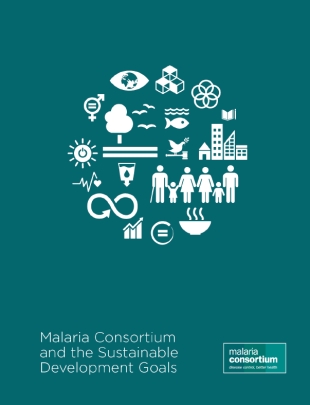 21/09/2018
Advocacy brief
21/09/2018
Advocacy brief
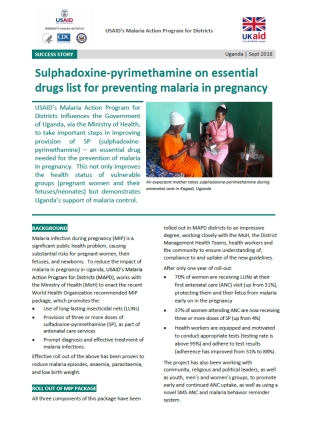 15/09/2018
Case study
15/09/2018
Case study
 06/09/2018
Journal article
06/09/2018
Journal article
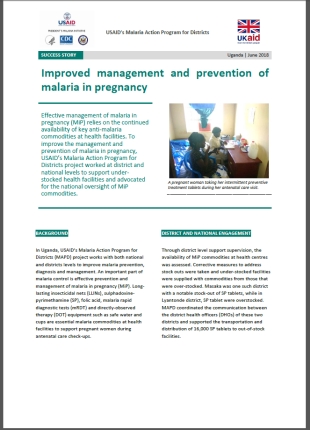 14/06/2018
Case study
14/06/2018
Case study
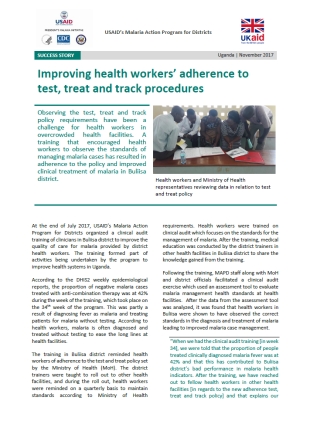 17/11/2017
Case study
17/11/2017
Case study
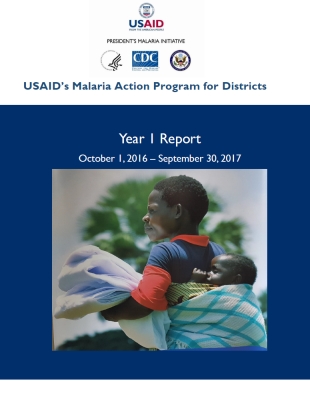 30/10/2017
Project report
30/10/2017
Project report
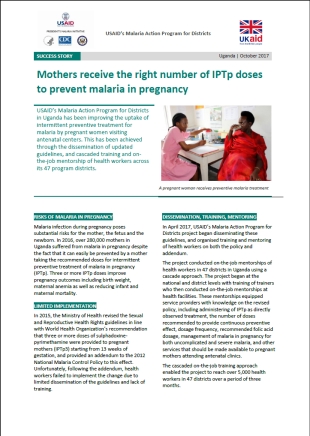 15/10/2017
Case study
15/10/2017
Case study
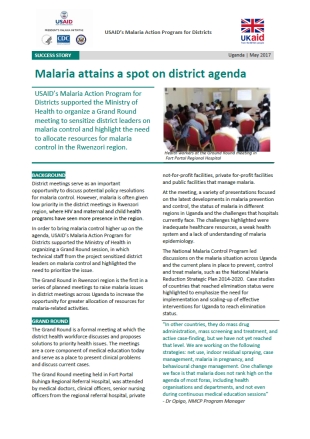 15/05/2017
Case study
15/05/2017
Case study
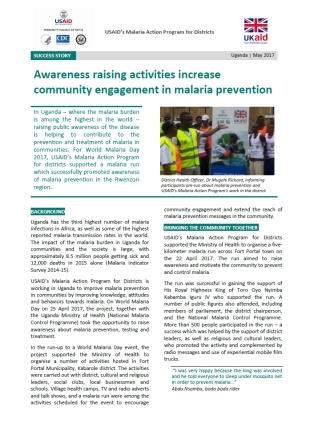 02/05/2017
Case study
02/05/2017
Case study
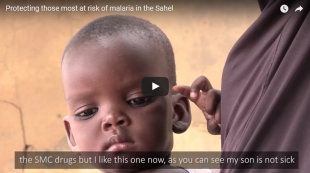 26/04/2017
Newsletter
26/04/2017
Newsletter
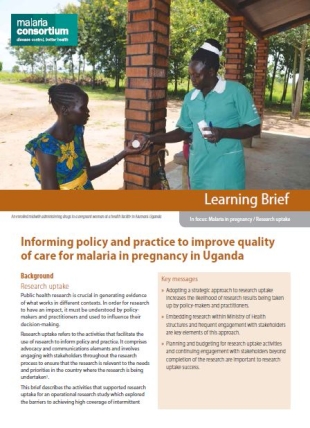 31/03/2017
Learning brief
31/03/2017
Learning brief
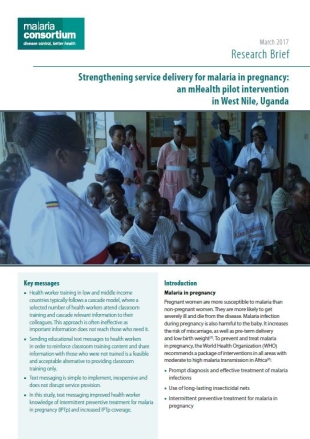 29/03/2017
Research brief
29/03/2017
Research brief
 04/11/2016
Journal article
04/11/2016
Journal article
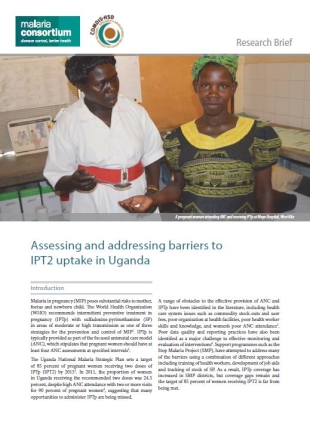 04/11/2016
Research brief
04/11/2016
Research brief
 04/07/2016
Journal article
04/07/2016
Journal article
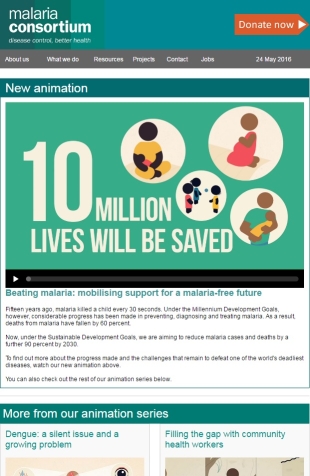 24/05/2016
Newsletter
24/05/2016
Newsletter
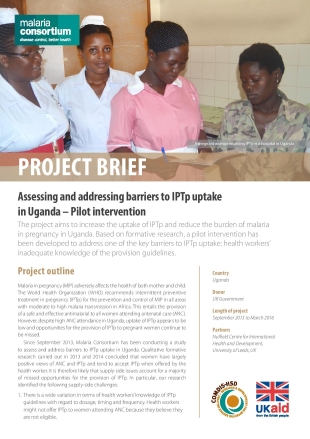 13/04/2015
Project brief
13/04/2015
Project brief
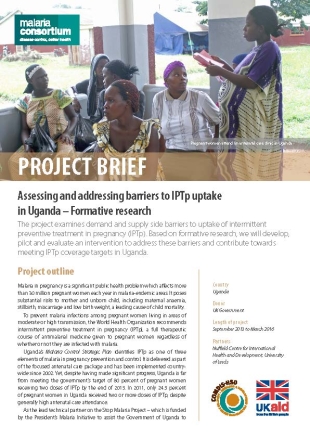 12/11/2013
Project brief
12/11/2013
Project brief
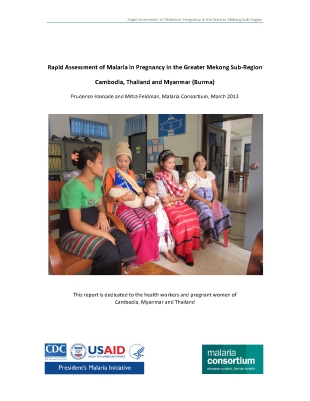 31/03/2013
Project report
31/03/2013
Project report
 19/12/2012
Journal article
19/12/2012
Journal article
 18/10/2011
Journal article
18/10/2011
Journal article
Malaria in pregnancy
 08/03/2024
Journal article
08/03/2024
Journal article
Heterogeneity in the prevalence of subclinical malaria, other co-infections and anaemia among pregnant women in rural areas of Myanmar
This study found high rates of anaemia among pregnant women, despite a low prevalence of subclinical malaria and co-infections. The authors advocate integrating interventions for malaria, anaemia and helminths into… 08/03/2024This study found high rates of anaemia among pregnant women, despite a low prevalence of subclinical malaria and co-infections. The authors advocate integrating interventions for malaria, anaemia and helminths into antenatal care services.
 10/05/2023
Brochure
10/05/2023
Brochure
Unlocking community-based solutions in malaria in pregnancy: Harnessing the power of women and adolescents
We integrate community-centred gender- and youth-responsive approaches into our programme delivery. 10/05/2023We integrate community-centred gender- and youth-responsive approaches into our programme delivery.
 11/03/2022
Project brief
11/03/2022
Project brief
Building resilient communities in South Sudan
We are targeting a combined 32,889 people in flood-affected areas of Aweil South county to close the gap in access to health facilities. 11/03/2022We are targeting a combined 32,889 people in flood-affected areas of Aweil South county to close the gap in access to health facilities.
 08/02/2022
Annual review
08/02/2022
Annual review
Malaria Consortium Strategy 2021–2025 (in Khmer)
We adapt to local circumstances and bring a constant desire to research, improve, adapt and refine, accepting that no one has a monopoly on good ideas. 08/02/2022We adapt to local circumstances and bring a constant desire to research, improve, adapt and refine, accepting that no one has a monopoly on good ideas.
 03/02/2022
Capacity statement
03/02/2022
Capacity statement
Malaria Consortium Uganda
In Uganda, we demonstrate pioneering work in integrated community case management, social behaviour change and community engagement. 03/02/2022In Uganda, we demonstrate pioneering work in integrated community case management, social behaviour change and community engagement.
 26/01/2022
Project brief
26/01/2022
Project brief
Supporting Uganda’s Malaria Reduction and Elimination Strategy (SUMRES): Working towards malaria-free districts in Uganda
The SUMRES project aims to implement integrated community case management and other vector control measures. 26/01/2022The SUMRES project aims to implement integrated community case management and other vector control measures.
 22/11/2021
Annual review
22/11/2021
Annual review
Estratégia do Malaria Consortium 2021–2025
Sabemos que é impossível aplicar umaabordagem única e adaptamo-nos às circunstâncias locais. Temos uma vontade permanente de investigar, melhorar, adaptar e aperfeiçoar. 22/11/2021Sabemos que é impossível aplicar umaabordagem única e adaptamo-nos às circunstâncias locais. Temos uma vontade permanente de investigar, melhorar, adaptar e aperfeiçoar.
 22/11/2021
Annual review
22/11/2021
Annual review
Stratégie de Malaria Consortium 2021–2025
Nous nous adaptons aux circonstances locales et nous sommes animés d’un désir constant de recherche, d’amélioration et d’adaptation. 22/11/2021Nous nous adaptons aux circonstances locales et nous sommes animés d’un désir constant de recherche, d’amélioration et d’adaptation.
 09/11/2021
Annual review
09/11/2021
Annual review
Malaria Consortium Strategy 2021–2025
We adapt to local circumstances and bring a constant desire to research, improve, adapt and refine, accepting that no one has a monopoly on good ideas. 09/11/2021We adapt to local circumstances and bring a constant desire to research, improve, adapt and refine, accepting that no one has a monopoly on good ideas.
 10/08/2021
Project brief
10/08/2021
Project brief
Reducing the malaria burden in Nigeria
We support Nigeria’s National Malaria Elimination Programme to deliver interventions that are designed to develop capacity around reporting and case management. 10/08/2021We support Nigeria’s National Malaria Elimination Programme to deliver interventions that are designed to develop capacity around reporting and case management.
 28/05/2021
Capacity statement
28/05/2021
Capacity statement
Malaria Consortium South Sudan
In South Sudan, we collaborate with government and partners to support community-centred, evidence-based interventions that respond to changing conditions. 28/05/2021In South Sudan, we collaborate with government and partners to support community-centred, evidence-based interventions that respond to changing conditions.
 30/10/2020
Learning brief
30/10/2020
Learning brief
Mainstreaming gender and youth in malaria programming in Uganda
Malaria Consortium's USAID MAPD project explored the gender- and youth-related norms that might be hindering effective malaria control in Uganda. 30/10/2020Malaria Consortium's USAID MAPD project explored the gender- and youth-related norms that might be hindering effective malaria control in Uganda.
 30/10/2020
Project report
30/10/2020
Project report
USAID Malaria Action Program for Districts: Year 4 report
During its fourth year, the project continued to conduct capacity building and health system strengthening despite the emergence of the COVID-19 pandemic. 30/10/2020During its fourth year, the project continued to conduct capacity building and health system strengthening despite the emergence of the COVID-19 pandemic.
 02/07/2020
Newsletter
02/07/2020
Newsletter
June 2020 — upSCALE newsletter Mozambique
This newsletter provides an update from our upSCALE project in Mozambique. 02/07/2020This newsletter provides an update from our upSCALE project in Mozambique.
 02/07/2020
Newsletter
02/07/2020
Newsletter
Junho 2020 — upSCALE newsletter Moçambique
Esta newsletter fornece uma atualização do nosso projeto upSCALE em Moçambique. 02/07/2020Esta newsletter fornece uma atualização do nosso projeto upSCALE em Moçambique.
 22/05/2020
Case study
22/05/2020
Case study
Malaria prevention during challenging times of COVID-19
Fewer people are following malaria prevention activities and seeking malaria treatment during lockdown. 22/05/2020Fewer people are following malaria prevention activities and seeking malaria treatment during lockdown.
 05/03/2020
Brochure
05/03/2020
Brochure
Estabelecimento de parcerias com os governos para melhoria da saúde materno-infantil
Esta brochura apresenta exemplos da assistência técnica que temos prestado a vários governos. 05/03/2020Esta brochura apresenta exemplos da assistência técnica que temos prestado a vários governos.
 05/03/2020
Capacity statement
05/03/2020
Capacity statement
Investigação
A investigação é fundamental para tudo o que fazemos no Malria Consortium, esta declaração de capacidade descreve a nossa experiência em investigação. 05/03/2020A investigação é fundamental para tudo o que fazemos no Malria Consortium, esta declaração de capacidade descreve a nossa experiência em investigação.
 10/02/2020
Capacity statement
10/02/2020
Capacity statement
Recherche
La recherche est au cœur de tout ce que nous faisons au Malaria Consortium, cet énoncé de capacité décrit notre expertise en recherche. 10/02/2020La recherche est au cœur de tout ce que nous faisons au Malaria Consortium, cet énoncé de capacité décrit notre expertise en recherche.
 10/02/2020
Brochure
10/02/2020
Brochure
Collaboration avec les gouvernements afin d’améliorer la santé maternelle et infantile
Cette brochure offre des exemples de l’assistance technique que nous avons fournie à divers gouvernements. 10/02/2020Cette brochure offre des exemples de l’assistance technique que nous avons fournie à divers gouvernements.
 07/02/2020
Advocacy brief
07/02/2020
Advocacy brief
Antenatal care: A crucial tool in Ethiopia’s fight against malaria in pregnancy
We echo the World Health Organization’s 2019 call for greater support for those most vulnerable to malaria — pregnant women and children under five. 07/02/2020We echo the World Health Organization’s 2019 call for greater support for those most vulnerable to malaria — pregnant women and children under five.
 20/12/2019
Project report
20/12/2019
Project report
MAPD Malaria SBCC Dipstick Report 2019
USAID’s Malaria Action Program for Districts assess the current knowledge, attitudes and practices of malaria prevention and control in five regions in Uganda. 20/12/2019USAID’s Malaria Action Program for Districts assess the current knowledge, attitudes and practices of malaria prevention and control in five regions in Uganda.
 17/12/2019
Brochure
17/12/2019
Brochure
Partnering with governments to improve maternal and child health
This brochure offers examples of the technical assistance we have provided to various governments. 17/12/2019This brochure offers examples of the technical assistance we have provided to various governments.
 30/10/2019
Project report
30/10/2019
Project report
USAID Malaria Action Program for Districts: Year 3 report
During MAPD's third year, the project overcame a number of additional challenges including prolonged upsurges of malaria in some districts. Read the Year 3 report in full... 30/10/2019During MAPD's third year, the project overcame a number of additional challenges including prolonged upsurges of malaria in some districts. Read the Year 3 report in full...
 23/09/2019
Project brief
23/09/2019
Project brief
Regional health integration to enhance services in eastern Uganda
Our project supports the delivery of malaria prevention and treatment interventions, as well as maternal, newborn and child care activities in Uganda. 23/09/2019Our project supports the delivery of malaria prevention and treatment interventions, as well as maternal, newborn and child care activities in Uganda.
 12/08/2019
Infographic
12/08/2019
Infographic
Malaria in pregnancy
This infographic details the issues surrounding malaria in pregnancy. 12/08/2019This infographic details the issues surrounding malaria in pregnancy.
 07/05/2019
Capacity statement
07/05/2019
Capacity statement
Research
Research is central to everything we do at Malaria Consortium, this capacity statement outlines our research expertise. 07/05/2019Research is central to everything we do at Malaria Consortium, this capacity statement outlines our research expertise.
 30/03/2019
Capacity statement
30/03/2019
Capacity statement
Malaria Consortium's global capability statement
Our global capability statement describes our approach and expertise, and details the way we work. 30/03/2019Our global capability statement describes our approach and expertise, and details the way we work.
 22/01/2019
Project brief
22/01/2019
Project brief
Transform: Primary Health Care
In Ethiopia, through the Transform: Primary Health Care project, we supported government efforts to reduce preventable maternal and child deaths. 22/01/2019In Ethiopia, through the Transform: Primary Health Care project, we supported government efforts to reduce preventable maternal and child deaths.
 30/10/2018
Project report
30/10/2018
Project report
USAID Malaria Action Program for Districts: Year 2 report
During its second year, the project contributed to reducing new malaria infections, increased access to treatment and reduced death. Read the Year 2 report in full... 30/10/2018During its second year, the project contributed to reducing new malaria infections, increased access to treatment and reduced death. Read the Year 2 report in full...
 15/10/2018
Case study
15/10/2018
Case study
Working with religious leaders to drive positive behavior change
USAID’s Malaria Action Program for Districts works together with religious leaders to develop sermon guides about malaria and health, so these influential leaders can drive positive malaria change among their… 15/10/2018USAID’s Malaria Action Program for Districts works together with religious leaders to develop sermon guides about malaria and health, so these influential leaders can drive positive malaria change among their followers – a novel approach in Uganda...
 24/09/2018
Project brief
24/09/2018
Project brief
Strengthening Uganda's response to malaria
The Strengthening Uganda’s Response to Malaria (SURMa) project aims to improve access to and uptake of high-quality malaria prevention and control services. Malaria Consortium, in partnership with Unicef, is supporting… 24/09/2018The Strengthening Uganda’s Response to Malaria (SURMa) project aims to improve access to and uptake of high-quality malaria prevention and control services. Malaria Consortium, in partnership with Unicef, is supporting the Ministry of Health to implement the project, funded by…
 21/09/2018
Advocacy brief
21/09/2018
Advocacy brief
Malaria Consortium and the Sustainable Development Goals
This brochure highlights some of the key ways in which Malaria Consortium is contributing to the Sustainable Development Goals and illustrates the importance of using a multifaceted approach to improve… 21/09/2018This brochure highlights some of the key ways in which Malaria Consortium is contributing to the Sustainable Development Goals and illustrates the importance of using a multifaceted approach to improve health outcomes globally.
 15/09/2018
Case study
15/09/2018
Case study
Sulphadoxine-pyrimethamine on essential drugs list for preventing malaria in pregnancy
USAID’s Malaria Action Program for Districts influences the Government of Uganda, via the Ministry of Health, to take important steps in improving provision of SP (sulphadoxine-pyrimethamine) – an essential drug… 15/09/2018USAID’s Malaria Action Program for Districts influences the Government of Uganda, via the Ministry of Health, to take important steps in improving provision of SP (sulphadoxine-pyrimethamine) – an essential drug needed for the prevention of malaria in pregnancy...
 06/09/2018
Journal article
06/09/2018
Journal article
Improving health worker performance through text messaging: A mixed-methods evaluation of a pilot intervention designed to increase coverage of intermittent preventive treatment of malaria in pregnancy in West Nile, Uganda
Poor health worker performance is a well-documented obstacle to quality service provision. Due to the increasingly widespread availability of mobile devices, mobile health (mHealth) has received growing attention as a… 06/09/2018Poor health worker performance is a well-documented obstacle to quality service provision. Due to the increasingly widespread availability of mobile devices, mobile health (mHealth) has received growing attention as a service improvement tool. This pilot study explored feasibility, acceptability and…
 14/06/2018
Case study
14/06/2018
Case study
Improved management and prevention of malaria in pregnancy
Effective management of malaria in pregnancy (MiP) requires key antimalarial commodities to always be available at health facilities. To improve the management and prevention of MiP, USAID’s Malaria Action Program… 14/06/2018Effective management of malaria in pregnancy (MiP) requires key antimalarial commodities to always be available at health facilities. To improve the management and prevention of MiP, USAID’s Malaria Action Program for Districts (MAPD) project worked at district and national levels…
 17/11/2017
Case study
17/11/2017
Case study
Improving health workers’ adherence to test, treat and track procedures
Observing the test, treat and track policy requirements have been a challenge for health workers in overcrowded health facilities. A training that encouraged health workers to observe the standards of… 17/11/2017Observing the test, treat and track policy requirements have been a challenge for health workers in overcrowded health facilities. A training that encouraged health workers to observe the standards of managing malaria cases has resulted in...
 30/10/2017
Project report
30/10/2017
Project report
USAID Malaria Action Program for Districts: Year 1 report
During MAPD's first year, the project rapidly completed its start-up activities and conducted capacity building, health system strengthening, and activity implementation in all districts. Read the Year 1 report in… 30/10/2017During MAPD's first year, the project rapidly completed its start-up activities and conducted capacity building, health system strengthening, and activity implementation in all districts. Read the Year 1 report in full...
 15/10/2017
Case study
15/10/2017
Case study
Mothers receive the right number of IPTp doses to prevent malaria in pregnancy
USAID’s Malaria Action Program for Districts in Uganda has been improving the uptake of intermittent preventive treatment for malaria by pregnant women visiting antenatal centers... 15/10/2017USAID’s Malaria Action Program for Districts in Uganda has been improving the uptake of intermittent preventive treatment for malaria by pregnant women visiting antenatal centers...
 15/05/2017
Case study
15/05/2017
Case study
Malaria attains a spot on district agenda
USAID’s Malaria Action Program for Districts supported the Ministry of Health to organize a Grand Round meeting to sensitize district leaders on malaria control and highlight the need to allocate… 15/05/2017USAID’s Malaria Action Program for Districts supported the Ministry of Health to organize a Grand Round meeting to sensitize district leaders on malaria control and highlight the need to allocate resources for malaria control in the Rwenzori region...
 02/05/2017
Case study
02/05/2017
Case study
Awareness raising activities increase community engagement in malaria prevention
In Uganda – where the malaria burden is among the highest in the world – raising public awareness of the disease is helping to contribute to the prevention and treatment… 02/05/2017In Uganda – where the malaria burden is among the highest in the world – raising public awareness of the disease is helping to contribute to the prevention and treatment of malaria in communities...
 26/04/2017
Newsletter
26/04/2017
Newsletter
World Malaria Day newsletter
Tuesday 25 April marked the 11th annual World Malaria Day. In support, Malaria Consortium ran a seven day campaign highlighting our achievements in the fight against malaria, the cost-effectiveness of… 26/04/2017Tuesday 25 April marked the 11th annual World Malaria Day. In support, Malaria Consortium ran a seven day campaign highlighting our achievements in the fight against malaria, the cost-effectiveness of our interventions and the huge impact reducing malaria has on…
 31/03/2017
Learning brief
31/03/2017
Learning brief
Informing policy and practice to improve quality of care for malaria in pregnancy in Uganda
Which activities supported the uptake of results from an operational research study that explored the barriers to achieving high coverage of intermittent preventive treatment for malaria in pregnancy in Uganda?… 31/03/2017Which activities supported the uptake of results from an operational research study that explored the barriers to achieving high coverage of intermittent preventive treatment for malaria in pregnancy in Uganda? This learning brief is particularly useful for researchers wishing to…
 29/03/2017
Research brief
29/03/2017
Research brief
Strengthening service delivery for malaria in pregnancy: A mobile health pilot intervention in West Nile, Uganda
To address key barriers to the uptake of intermittent preventive treatment for malaria in pregnancy (IPTp), Malaria Consortium developed a pilot intervention that trained health workers on malaria in pregnancy.… 29/03/2017To address key barriers to the uptake of intermittent preventive treatment for malaria in pregnancy (IPTp), Malaria Consortium developed a pilot intervention that trained health workers on malaria in pregnancy. Following the training, they received text messages reinforcing the training…
 04/11/2016
Journal article
04/11/2016
Journal article
Assessing demand-side barriers to uptake of intermittent preventive treatment for malaria in pregnancy: A qualitative study in two regions of Uganda
Background To prevent malaria infection during pregnancy in endemic areas in Africa, the World Health Organization recommends the administration of intermittent preventive treatment in pregnancy (IPTp) as part of the focused… 04/11/2016Background To prevent malaria infection during pregnancy in endemic areas in Africa, the World Health Organization recommends the administration of intermittent preventive treatment in pregnancy (IPTp) as part of the focused antenatal care package. However, IPTp uptake in most countries remains…
 04/11/2016
Research brief
04/11/2016
Research brief
Assessing and addressing barriers to the uptake of intermittent preventive treatment in pregnancy in Uganda
This research brief evaluates the uptake of intermittent preventive treatment in pregnancy (IPTp) in areas of medium or high malaria transmission. IPTp is typically provided as part of the focused… 04/11/2016This research brief evaluates the uptake of intermittent preventive treatment in pregnancy (IPTp) in areas of medium or high malaria transmission. IPTp is typically provided as part of the focused antenatal care model, yet various issues are hindering the effective…
 04/07/2016
Journal article
04/07/2016
Journal article
Assessing supply-side barriers to uptake of intermittent preventive treatment for malaria in pregnancy: A qualitative study and document and record review in two regions of Uganda
Background Intermittent preventive treatment in pregnancy (IPTp) with sulfadoxine–pyrimethamine (SP), provided as part of routine antenatal care (ANC), is one of three malaria-in-pregnancy prevention and control mechanisms recommended by the World… 04/07/2016Background Intermittent preventive treatment in pregnancy (IPTp) with sulfadoxine–pyrimethamine (SP), provided as part of routine antenatal care (ANC), is one of three malaria-in-pregnancy prevention and control mechanisms recommended by the World Health Organization (WHO). However, despite high ANC attendance and increased…
 24/05/2016
Newsletter
24/05/2016
Newsletter
Our new malaria animation
The Sustainable Development Goals aim to reduce malaria cases and deaths by further 90 percent by 2030. To find out more about the progress made and the challenges that remain… 24/05/2016The Sustainable Development Goals aim to reduce malaria cases and deaths by further 90 percent by 2030. To find out more about the progress made and the challenges that remain to defeat one of the world's deadliest diseases, watch our…
 13/04/2015
Project brief
13/04/2015
Project brief
Assessing and addressing barriers to the uptake of intermittent preventive treatment in pregnancy in Uganda: Pilot intervention
This project aims to increase the uptake of intermittent preventive treatment in pregnancy (IPTp) to reduce the burden of malaria in pregnancy in Uganda. Based on formative research, a pilot… 13/04/2015This project aims to increase the uptake of intermittent preventive treatment in pregnancy (IPTp) to reduce the burden of malaria in pregnancy in Uganda. Based on formative research, a pilot intervention has been developed to address one of the key…
 12/11/2013
Project brief
12/11/2013
Project brief
Assessing and addressing barriers to the uptake of intermittent preventive treatment in pregnancy in Uganda
This project studied demand and supply side barriers to the uptake of intermittent preventive treatment in pregnancy (IPTp). Based on the findings of the formative research, an intervention was developed… 12/11/2013This project studied demand and supply side barriers to the uptake of intermittent preventive treatment in pregnancy (IPTp). Based on the findings of the formative research, an intervention was developed and piloted. The intervention is currently being evaluated to assess…
 31/03/2013
Project report
31/03/2013
Project report
Rapid Assessment of Malaria in Pregnancy in the Greater Mekong Sub-Region Cambodia, Thailand and Myanmar
31/03/2013 19/12/2012
Journal article
19/12/2012
Journal article
Malaria Policy Advisory Committee to the WHO: Conclusions and recommendations of September 2012 meeting
This article provides a summary of the discussions, conclusions and recommendations from the meeting of the Malaria Policy Advisory Committee to the World Health Organization in September 2012. 19/12/2012This article provides a summary of the discussions, conclusions and recommendations from the meeting of the Malaria Policy Advisory Committee to the World Health Organization in September 2012.
 18/10/2011
Journal article
18/10/2011
Journal article
